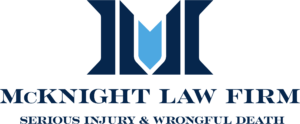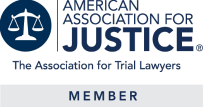Injuries In Stores And On Properties Of Others
Store owners and other owners of properties have a duty to keep the properties in a reasonably safe condition by not creating hazards; and if hazards exist, to make reasonable efforts to correct the hazards the owners either know about, or reasonably should know about.
Some of the most serious injuries occur due to property owner negligence. Stores fail to stack merchandise properly, or construct shelves according to manufacturer recommendations. Parking lots are left un-maintained with pot holes and other hazards that are not repaired. Refrigerators in restaurants leak onto the floor in common areas, creating slip and fall hazards. Stores fail to clean up spills. The list of hazards to people while on property of others is seemingly endless, depending on the nature of the property.
The duties owed to people while on the property of others depends upon the legal status of the person on the property of another. A “business invitee” is the most common, where a person is on the property for a mutual benefit; perhaps a grocery store patron, or a tenant or guest of a tenant in a common area of a rental property etc… A property owner owes a business licensee a duty of “reasonable care” to keep the premise safe for business invitees. Practically speaking, this means that the property owner cannot create a hazard; and if the hazard exists that the property owner either knows about, or reasonably should know about, then there is a duty to fix the hazard. In cases involving serious injury or wrongful death, the McKnight Law Firm will thoroughly investigate the case, and in many cases, institute litigation to develop the facts necessary to prove that a property owner either created a hazard, or failed to remedy a hazard the owners knew or reasonably should have known about.
Property owners that are social hosts or otherwise allow persons to enter their property owe these “licensees” a duty to warn of hidden dangers that the owners know about or reasonably should know about. Perhaps a sewage pipe fails and causes a sinkhole, and grass covers the hole; perhaps a manhole cover is left open and someone falls into the hole under circumstances where the hole is not open and obvious. The kinds of dangerous conditions on a property are numerous.
Adult trespassers trespass at their own risk, generally. However, children are different. Property owners will sometimes maintain what is referred to as an “attractive nuisance,” a condition or item on a property that attracts children. Perhaps a pond, a pool, construction equipment or other dangerous conditions that remain open and accessible to children. When children trespass and are injured or killed, the property owner maintaining the “attractive nuisance” can be held liable.








